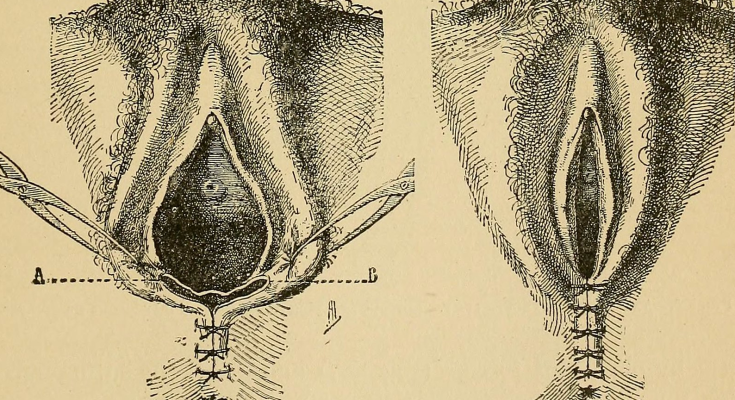
The genital area, including the surrounding skin, is extremely delicate and vulnerable. Because of its unique sensitivity, this part of the body can easily become irritated, damaged, or infected if not properly cared for. The good news is that with a few simple daily habits, you can protect and nurture your genital skin to maintain its health, comfort, and resilience. Below, you’ll find an in-depth guide to gentle care practices that can make a big difference.
Washing Your Genital Area
Do use plain water or an emollient to wash your genitals.
Washing your genital skin doesn’t require fancy products — in fact, simplicity is best. Using plain, lukewarm water is perfectly effective for daily cleansing. However, to offer even more protection and moisture, we recommend washing with an emollient such as aqueous cream, diprobase, or doublebase. These emollients are specially formulated to be gentle on the skin and are readily available at pharmacies, supermarkets, and online at affordable prices.
To use an emollient for washing:
-
Apply a generous amount of the emollient directly onto the genital area before stepping into the bath or shower.
-
Massage it gently onto the skin, covering all external genital areas.
-
Allow it to sit as you wash the rest of your body.
-
Rinse the genital area thoroughly with clean, lukewarm water to remove any excess product.
This method creates a protective barrier that helps shield the sensitive skin from harsher soaps, shampoos, or bath additives that may inadvertently come into contact with your genitals during washing.
Emollients are safe for daily use. If you experience persistent dryness, consider reapplying a small amount to clean, dry genital skin before bed each night to help maintain hydration overnight.
Letting Your Skin Breathe
Do allow fresh air to get to your genital skin.
Modern clothing tends to trap moisture and heat, which can lead to discomfort, irritation, or even infections if the genital skin is unable to breathe. Both winter and summer present unique challenges:
-
Winter: Heavy clothing layers designed to keep you warm also prevent ventilation.
-
Summer: High outdoor temperatures combined with synthetic fabrics can cause excessive sweating.
Whenever you have the opportunity, give your genital area a chance to “breathe.”
Some easy ways to do this:
-
At home in the evenings, especially while watching TV or relaxing, try going underwear-free.
-
At bedtime, consider sleeping without underwear, wearing instead a loose-fitting pair of cotton pyjama bottoms or a soft cotton nightdress.
-
If full nudity isn’t comfortable for you, lightweight loungewear made from breathable materials is a great option.
Allowing fresh air to circulate helps reduce moisture buildup, supports healthy skin function, and promotes natural cooling and dryness.
Choosing the Right Underwear
Do wear cotton (or cotton gusset) underwear.
Underwear choices matter more than you might think. Cotton is the gold standard for undergarments because it is breathable, soft, and gentle against sensitive skin.
In contrast, underwear made from synthetic materials such as nylon, polyester, or lace traps heat and moisture against the body, creating a warm, humid environment that can irritate the skin and encourage the growth of bacteria or yeast.
When selecting underwear:
-
Choose 100% cotton whenever possible.
-
If you prefer more decorative styles, ensure that at least the gusset (the part that touches your genitals) is made of cotton.
-
Avoid tight-fitting styles that can create friction — opt for well-fitted but breathable designs.
-
Change your underwear daily and more often if you become sweaty, such as after exercise.
Additionally, wash your underwear with a non-biological washing powder or liquid. Non-biological detergents are free from enzymes that can trigger irritation, making them much kinder to sensitive skin.
More Essential Tips for Genital Skin Health
Be gentle when drying.
After washing, avoid rubbing the genital area vigorously with a towel. Instead, pat the area dry gently with a soft, clean towel.
Harsh drying techniques can create microscopic tears in the delicate skin, increasing vulnerability to irritation and infection.
Avoid scented products on your genitals.
Many popular soaps, body washes, bubble baths, and intimate hygiene sprays contain perfumes, dyes, and harsh chemicals. These ingredients can disrupt the natural balance of your skin and lead to irritation, dryness, or allergic reactions. Stick to fragrance-free products, and remember: the genital area is largely self-cleaning and does not require deep cleansing or deodorizing.
Stay well-hydrated.
Healthy skin, including genital skin, starts from within. Drink plenty of water throughout the day to maintain hydration levels. Dehydrated skin is more prone to cracking, itching, and irritation.
Wear loose-fitting clothing whenever possible.
Especially on hot days or during long periods of sitting (e.g., at work or on a long flight), loose clothing made from natural fibers like cotton or linen allows better airflow around your genitals and reduces sweat buildup.
Take extra care after exercise.
After sports or any intense physical activity, shower as soon as possible. Sweaty clothes, especially tight-fitting gym wear, can hold moisture close to the skin, leading to chafing and increasing the risk of fungal infections. Always change into clean, dry underwear and clothing after exercising.
Manage hair removal carefully.
If you choose to remove pubic hair, be extra cautious. Shaving, waxing, or using depilatory creams can cause small nicks, ingrown hairs, or irritation. Always use clean tools, a gentle shaving cream, and moisturize afterward with an unscented emollient.
See a healthcare provider if issues persist.
If you experience persistent redness, itching, discomfort, or unusual discharge despite following these care tips, it’s important to seek medical advice. Sometimes, underlying conditions such as dermatitis, infections, or skin disorders may require specific treatments.
Quick Daily Routine Checklist:
-
Wash the genital area once daily with plain water or an emollient.
-
Pat the area dry gently — do not rub.
-
Allow for some “air time” at home or during sleep.
-
Wear breathable cotton underwear.
-
Avoid perfumed soaps, body washes, and bubble baths.
-
Stay hydrated and maintain a balanced diet.
-
Change out of sweaty clothing as soon as possible.
-
Use non-biological detergent to wash underwear.
-
Moisturize at night if dryness is an issue.
Taking just a little extra care each day can go a long way toward keeping your genital skin healthy, happy, and protected. Gentle routines, breathable fabrics, and a bit of fresh air are simple, effective ways to support this sensitive part of your body.
Please help share.




